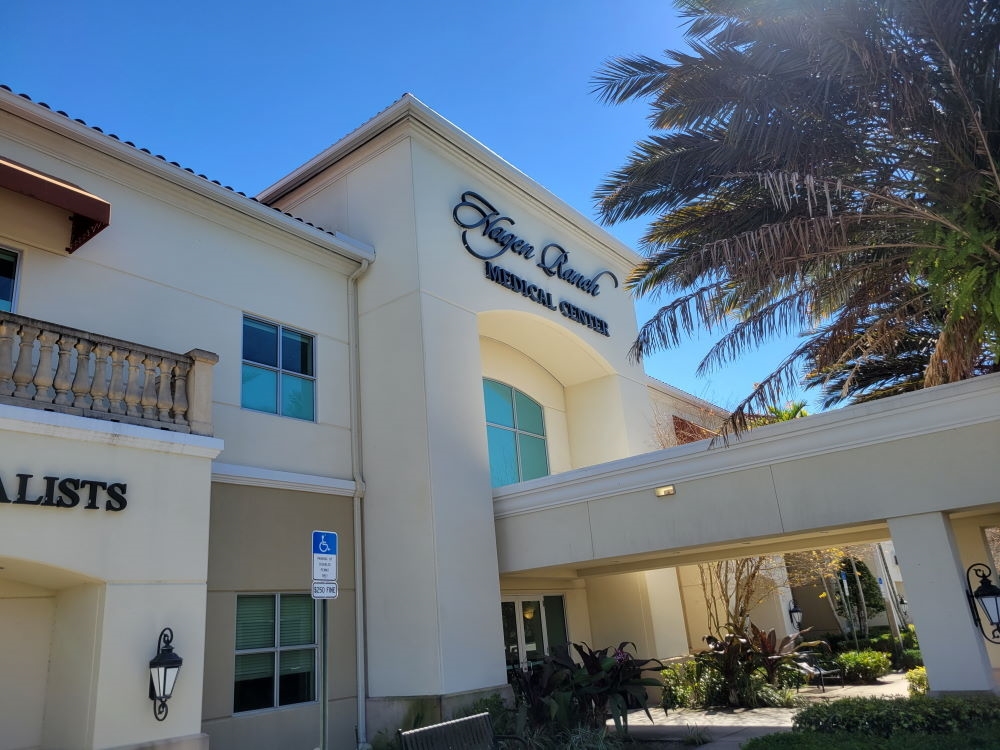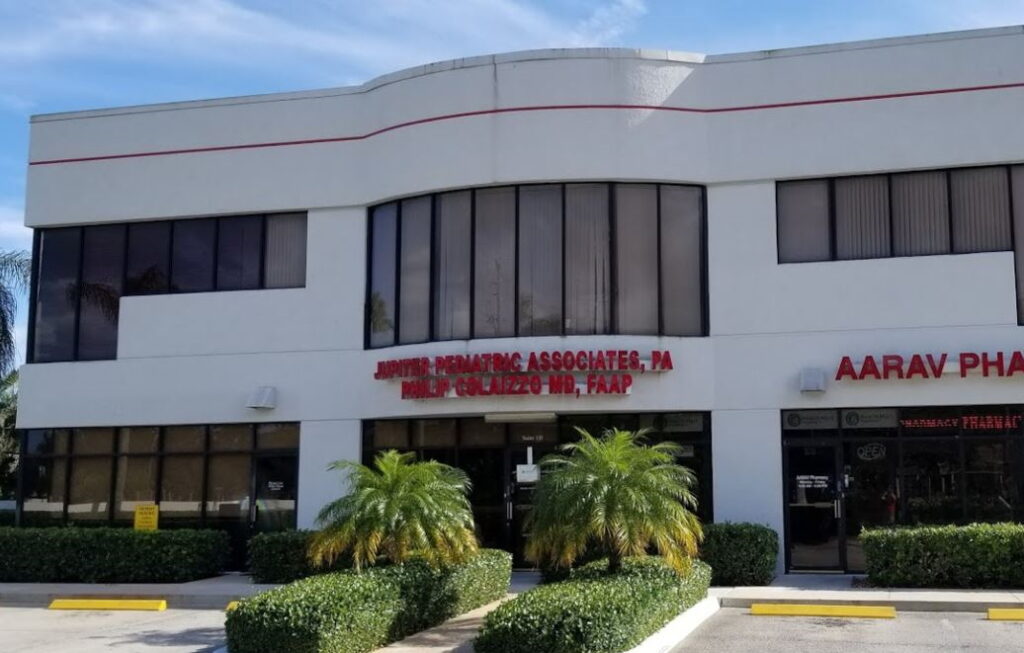Boynton Beach
10150 Hagen Ranch Rd
Jupiter
6650 W Indiantown Rd
10150 Hagen Ranch Rd
6650 W Indiantown Rd
When you swallow, you are chewing food and moving it to the esophagus, a tube that connects to the stomach. Dysphagia, the medical term for difficulty swallowing, is characterized by the sensation of food or liquid getting stuck in the throat or chest. There are numerous factors that can cause swallowing difficulty, most of them fairly benign.
Few of us give much thought to the act of swallowing, but it’s actually a complex process that involves around 50 pairs of muscles and nerves.
There are four stages that make up the swallowing process:
 Swallowing disorders indicate persistent problems with chewing and swallowing. The main symptoms are discomfort when swallowing, chest pain, and the feeling that food or liquid is getting stuck in the throat or chest. Additionally, you may experience drooling, heartburn, nausea, wheezing, coughing, regurgitation, sore throat, and a sour taste in the mouth.
Swallowing disorders indicate persistent problems with chewing and swallowing. The main symptoms are discomfort when swallowing, chest pain, and the feeling that food or liquid is getting stuck in the throat or chest. Additionally, you may experience drooling, heartburn, nausea, wheezing, coughing, regurgitation, sore throat, and a sour taste in the mouth.
Causes of dysphagia are diverse. They may originate in the esophagus and include diffuse spasm, an improperly relaxed sphincter, weak esophageal muscles, a narrow esophagus or esophageal ring, the presence of foreign bodies, gastroesophageal reflux disease (GERD), a hardening of the tissues called scleroderma, and tumors. In addition, the muscles and nerves responsible for swallowing can weaken as a result of neurological disorders, pharyngeal diverticula or cancer. Children may have difficulty swallowing if they suffer from certain nervous system disorders or a cleft palate.
Treatment for swallowing disorders depends on the underlying cause and where the problem originates. Medication, surgery, and swallowing therapy are the most common types of treatments administered. Medications include antacids, muscle relaxants, and drugs to limit the amount of stomach acid produced. A surgical procedure to stretch or dilate the esophagus when it is too narrow often helps resolve the issue. Swallowing therapy involving chewing and swallowing techniques can help stimulate the muscles and nerves responsible for swallowing. The most severe cases of dysphagia may require a liquid diet or feeding tube.
Scheduling an appointment is easy. Just click the “SCHEDULE ONLINE” button on any page of this website, or call our main number at (561) 736-8141.
We are the region’s only all Fellowship Trained adult and pediatric ENT specialists. The physicians and staff at ENT Specialists have been treating patients throughout all of South Florida since 1995. We can usually accommodate same-day and next-day appointments.

Most insurance plans accepted.

OFFICE HOURS
Mon: 9:00am – 5:00pm
Tue: 9:00am – 5:00pm
Wed: 9:00am – 5:00pm
Thu: 9:00am – 5:00pm
Fri: 9:00am – 5:00pm

ENT Specialists
10150 Hagen Ranch Rd
Boynton Beach, FL 33437
(561) 736-8141

ENT Specialists
6650 W Indiantown Rd
Jupiter, FL 33458
(561) 736-8141

NEW PATIENTS
Welcome!
To register in our patient portal and schedule your first appointment

RETURNING PATIENTS
Welcome Back!
To sign in to your patient portal account and schedule your next appointment